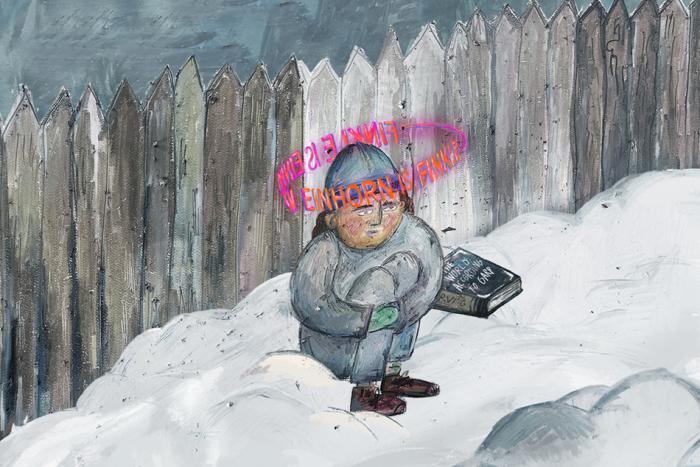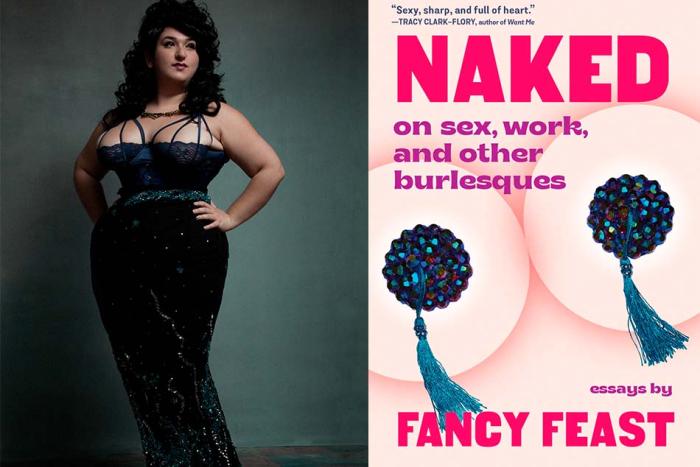Welcome to Mind in Bloom, a column deconstructing current events, music and art.
In recent months, I’ve noticed an undercurrent of dissent coalescing around our collective relationship with the internet. Anne Helen Petersen’s recent essay “The Sterile World of Infinite Choice” shined a light on the paradox at the centre of internet use today, remarking on how surprising it was that “instant access to all forms of entertainment would leave us with so few touchstones.” I was once a high school student eagerly swapping CDs out of my 100-disc wallet into my Panasonic Shockwave between classes and I still regularly have nostalgia for those limitations. Picking the albums that would make it into my carrying case every morning felt like a monumental decision. The experience was more intimate back then, just me and the music I had with me.
Now I’m subjected to a firehose of content that’s pointed directly at my head by advertisers and tech companies 24 hours a day, making this unlimited access suddenly feel like a threat. Every New Music Friday makes me feel like I’m being force-fed in Dante’s third circle of hell. It’s laborious. I clock in every week, skipping through cynical collaborations by artists artlessly aiming to expand their market reach to include their respective audiences. It is like digging through garbage and I often come up empty-handed, reverting to my old playlists and comfort albums like so many listeners today. (In 2021, songs over eighteen months old accounted for 69.8% of music consumption in the United States.)
And that’s when I can summon the strength to choose something. I usually find myself staring into the void, unable to think of what to listen to, paralyzed by the available options. When I do put a track on, nothing on these apps makes me feel the way I did when I was downloading pirate radio grime mixes in the early 2000s. That was true discovery, like landing on another planet. To quote the band Real Lies, I felt like I was part of something. What’s replaced that sensation is the illusion of choice, with listeners funnelled toward approved playlists and algorithmic recommendations without them even noticing. Music has become a disposable resource that is paid for every month alongside the gas, water, and electric bills.
This degraded experience mirrors that of social media, which has become increasingly unsatisfying. A far cry from the unpredictable wildness I was exposed to by the open internet of my teenage years, I now wake up and mechanically cycle between Instagram, Twitter, Gmail and Facebook in a loop as the day crawls on. And in the rare moment where I remember that I have access to all recorded knowledge in history and can indeed search for whatever I want, I’ll end up scrolling through IG or Twitter on the way to the search engine—a sure-fire way to vaporize that idea from my mind, lost to another distraction or mesmerized by an opportunity to shop.
As these platforms stray further from their initial PR mission statements about helping us stay connected to our loved ones, they have become stale destinations that are largely devoid of creativity and enthusiasm. Generating cautious optimism back in July, Threads has seemingly already gone the way of Google+ and Ello, a leaky lifeboat paddling in circles. Most gallingly, Meta made their priorities clear to us all when they gave early app access to brands (and people who see themselves as brands) before the rest of us. There was something creepy about scrolling through the app when Threads launched publicly and only seeing corporate entities in my feed. It was a bit like driving through a dying highway town, streaked with towering neon restaurant road signs but barely anyone lives there.
After years of selling our data to the highest bidder, apps like TikTok, X (formerly known as Twitter) and Instagram have become prime examples of what happens to platforms when they incentivize their users with a profit motive. Once considered a “global town square,” X has become not much more than a sea of engagement bait, proving that attention has literally become the currency of our time. Rather than a place to authentically communicate, X has become a game where users earn money by spewing strong opinions and unverified news designed to enrage the potential reader into viewing, commenting, or sharing so they end up in the For You page, providing them with revenue through X’s Creator Subscription program.
With many of the site’s most thoughtful users leaving X for greener pastures, what is left behind is most of the app’s worst aspects writ large. X is a markedly unpleasant place where you can find out who died today, who we all hate today (it might be you), how you can ride the crest of whatever temporary wave of outrage is happening so that you can profit from it, a hellsite where people tag me about how I was wrong about an album review I wrote twenty years ago (please stop doing this).
All of this has led me to feel an overwhelming sense of malaise about the internet. I’ve recently felt an urge to disengage from all social media platforms, exhausted from having my thoughts mined, tired of being influenced. More and more, it feels like I’m clocking in rather than logging in. Entrenched in a classic sunk-cost fallacy, I’m reluctant to leave the audience I’ve spent years building up on some of these apps, even if the algorithm rarely lets me reach them at all. I want to use technology, not let it use me. I desperately want to know less about what's going on in the world. I want to become more intentional with my media diet and my technology use, rather than just going through the motions.
It turns out that I was in exactly the perfect headspace to stumble across Julio Vincent Gambuto’s Please Unsubscribe, Thanks! How to Take Back Our Time, Attention, and Purpose in a World Designed to Bury Us in Bullshit. Like a cross between Marie Kondo, No Logo and Atomic Habits, it’s a modern self-help book for the technologically fatigued that never feels pedantic or preachy. It’s the kind of thing that would’ve been a counterculture hit in the “don’t sell out!” ‘90s. But because of its clear-eyed admonishment of the collusion between the media, political parties, tech companies and the big banks, I haven’t seen any press about it online. It certainly wouldn't be in the algorithm’s best interest to share it with me.
What Gambuto writes in Please Unsubscribe goes against all the fixed notions that we have about tech’s seemingly progressive aims of optimization and automation. I noticed myself doing some internal bargaining when he exhorted the reader to erase their social media platforms and get rid of their smartphone. Why did I feel a pang of anxiety at the thought of letting go? What does that say about my relationship with technology? How would I feel if I removed myself from what he calls “the infinite loop” and saw the world again as I once did years ago?
The book inspired me to unsubscribe from every brand trying to sell me something in my Gmail account. Even SSENSE. It was empowering, as if I was physically kicking the companies out of my home. The process was also more difficult than I expected, making me consider just how badly these corporations want to keep their tentacles in our inboxes. Some of Gambuto’s more extreme suggestions might be impossible for many of us to adhere to. But the book is more about considering these possibilities in the first place, a reminder of the agency we all have in how we engage with the web. Please Unsubscribe woke me up to a side of myself that was always there but had taken a backseat to all the notifications. There will come a time when I completely divest from social media and see what’s on the other side of that. But until then, I’ll be pruning the edges of my internet usage with Gambuto’s well-timed suggestions.







